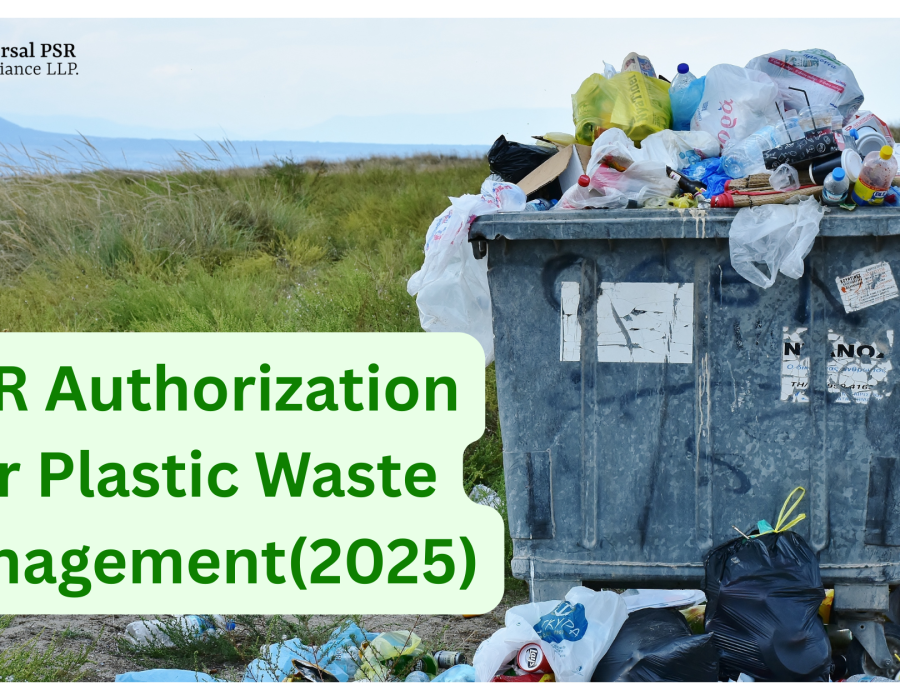What is EPR Authorization for Plastic Waste?
Extended Producer Responsibility (EPR) is a policy approach under which producers are responsible for the environmentally sound management of their products throughout their lifecycle.
For plastic waste, EPR authorization ensures that businesses:
- Collect and recycle plastic packaging waste.
- Meet annual targets prescribed by the Central Pollution Control Board (CPCB).
- Submit reports demonstrating compliance.
Who Needs EPR Authorization?
The following entities must obtain EPR authorization before selling plastic-packaged products:
- Producers manufacturing plastic packaging.
- Importers bringing plastic-packaged products into India.
- Brand Owners selling products under their brand, whether manufactured locally or imported.
Categories of Plastic Packaging Under EPR
The CPCB has categorized plastic packaging into:
- Rigid plastic packaging.
- Flexible plastic packaging (single/multilayer).
- Multilayered plastic packaging with materials other than plastics.
- Compostable plastic packaging.
Each category has specific recycling obligations and targets.
Benefits of EPR Authorization
✅ Legal Compliance with Plastic Waste Management Rules.
✅ Improved Brand Reputation as an environmentally responsible business.
✅ Contribution to Sustainability by reducing plastic pollution.
✅ Avoidance of Penalties and Business Disruption.
Documents Required for EPR Authorization
To apply for EPR authorization, you must prepare:
- GST Certificate.
- PAN Card of the company.
- Incorporation Certificate.
- Product and packaging details.
- Agreement with registered recyclers or PROs (Producer Responsibility Organizations).
- Action plan and recycling targets.
- BIS certificate (if applicable).
How to Get EPR Authorization – Step-by-Step Process
- Preparation of Documents: Collect and scan all mandatory documents.
- Registration on CPCB Portal: Create a user ID on the official CPCB EPR Portal.
- Submission of Application: Fill out the online form accurately, attach documents, and submit.
- Review by CPCB: The CPCB may ask for clarifications or additional details.
- Grant of Authorization: Once approved, you will receive an EPR certificate valid for one year (renewable).
Compliance Requirements After Authorization
After obtaining EPR authorization, you must:
- Meet annual collection and recycling targets.
- Submit quarterly and annual compliance reports to CPCB.
- Use registered recyclers and maintain records of waste processed.
- Renew the authorization on time.
Non-compliance can result in:
❌ Hefty fines.
❌ Suspension of authorization.
❌ Legal action.
How PSR Compliance Supports You
Managing EPR authorization and compliance is complex. PSR Compliance offers comprehensive services for:
✅ EPR registration and certification.
✅ Drafting action plans and agreements with recyclers.
✅ Filing returns and compliance reports.
✅ Renewal and advisory support.
Our experts help you navigate regulations seamlessly so you remain fully compliant and focused on growth.
If you’re ready to secure your EPR authorization for plastic waste management, visit:
👉 https://www.psrcompliance.com/epr-registration-for-plastic-waste





Comments